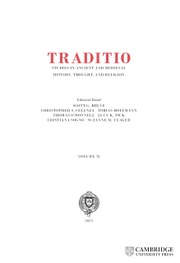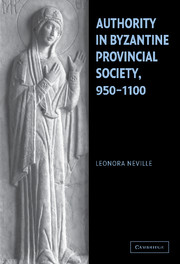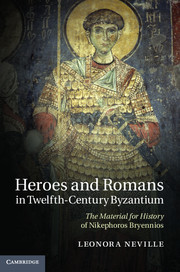Guide to Byzantine Historical Writing
This handy reference guide makes it easier to access and understand histories written in Greek between 600 and 1480 CE. Covering classicizing histories that continued ancient Greek traditions of historiography, sweeping, fast-paced 'chronicle' type histories, and dozens of idiosyncratic historical texts, it distills the results of complex, multi-lingual, specialist scholarship into clear explanations of the basic information needed to approach each medieval Greek history. It provides a sound basis for further research on each text by describing what we know about the time of composition, content covered by the history, authorship, extant manuscripts, previous editions and translations, and basic bibliography. Even-handed explanations of scholarly debates give readers the information they need to assess controversies independently. A comprehensive introduction orients students and non-specialists to the traditions and methods of Byzantine historical writing. It will prove an invaluable timesaver for Byzantinists and an essential entry point for classicists, western medievalists, and students.
- Provides a comprehensive introduction to Byzantine traditions of historical writing
- Contains a chapter on every overtly historical text written in Greek between 600 and 1480
- Each chapter discusses the content, the time of composition, and the authorship of the history as well as its medieval manuscripts and published editions and translations, and provides a starting bibliography
Reviews & endorsements
'The venerable tradition of Roman history writing flourished long after the capital’s move to Constantinople and the emergence of a Greek-speaking literary class to record its medieval fortunes. The surviving source material reflects a variety of voices - from church leaders and monks to bureaucrats, scholars, generals, and members of the imperial family - who wrote from their own distinctive perspective about the times in which they lived. Neville offers a concise introduction to a complex historiographic field by focusing on 52 important authors between the 7th and 15th centuries. … Medievalists and nonspecialists alike will be well served by this engaging introduction to the literary tradition of a rich historical world. Recommended.' M. Rautman, Choice
Product details
May 2018Paperback
9781107691162
330 pages
227 × 150 × 17 mm
0.48kg
2 tables
Available
Table of Contents
- 1. Theophylakt Simokatta
- 2. Paschal Chronicle
- 3. George Synkellos
- 4. Chronicle of Theophanes
- 5. Patriarch Nikephoros
- 6. Scriptor Incertus de Leo V
- 7. Chronicle of 81
- 8. Megas Chronographos
- 9. George the Monk
- 10. Peter of Alexandria
- 11. Genesios
- 12. Theophanes Continuatus
- 13. Constantinian excerpts
- 14. John Kaminiates
- 15. Symeon the Logothete
- 16. Leo the Deacon
- 17. Chronicle of Monemvasia
- 18. Chronicon Bruxellense
- 19. Psellos
- 20. John Xiphilinos
- 21. Michael Attaleiates
- 22. John Skylitzes and Scylitzes Continuatus
- 23. George Kedrenos
- 24. Nikephoros Bryennios
- 25. Anna Komnene
- 26. John Kinnamos
- 27. John Zonaras
- 28. Constantine Manasses
- 29. Michael Glykas
- 30. Eustathios of Thessaloniki
- 31. Joel
- 32. Niketas Choniates
- 33. George Akropolites
- 34. Theodore Skoutariotes
- 35. George Pachymeres
- 36. Nikephoros Gregoras
- 37. Ephraim
- 38. Constantine Akropolites the Grand Logothete
- 39. Chronicle of Morea
- 40. Nikephoros Kallistos Xanthopoulos
- 41. John VI Kantakouzenos
- 42. Michael Panaretos
- 43. Chronicle of Ioannina
- 44. Chronicle of Tocco
- 45. John Kananos
- 46. John Anagnostes
- 47. Leontios Machairas
- 48. Sylvester Syropoulos
- 49. Doukas
- 50. George Sphrantzes
- 51. Michael Kritovoulos
- 52. Laonikos Chalkokondyles
- Appendix 1
- Appendix 2.

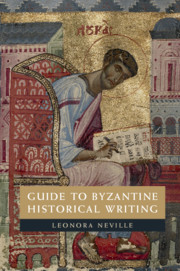
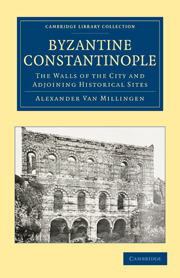


.jpg)
